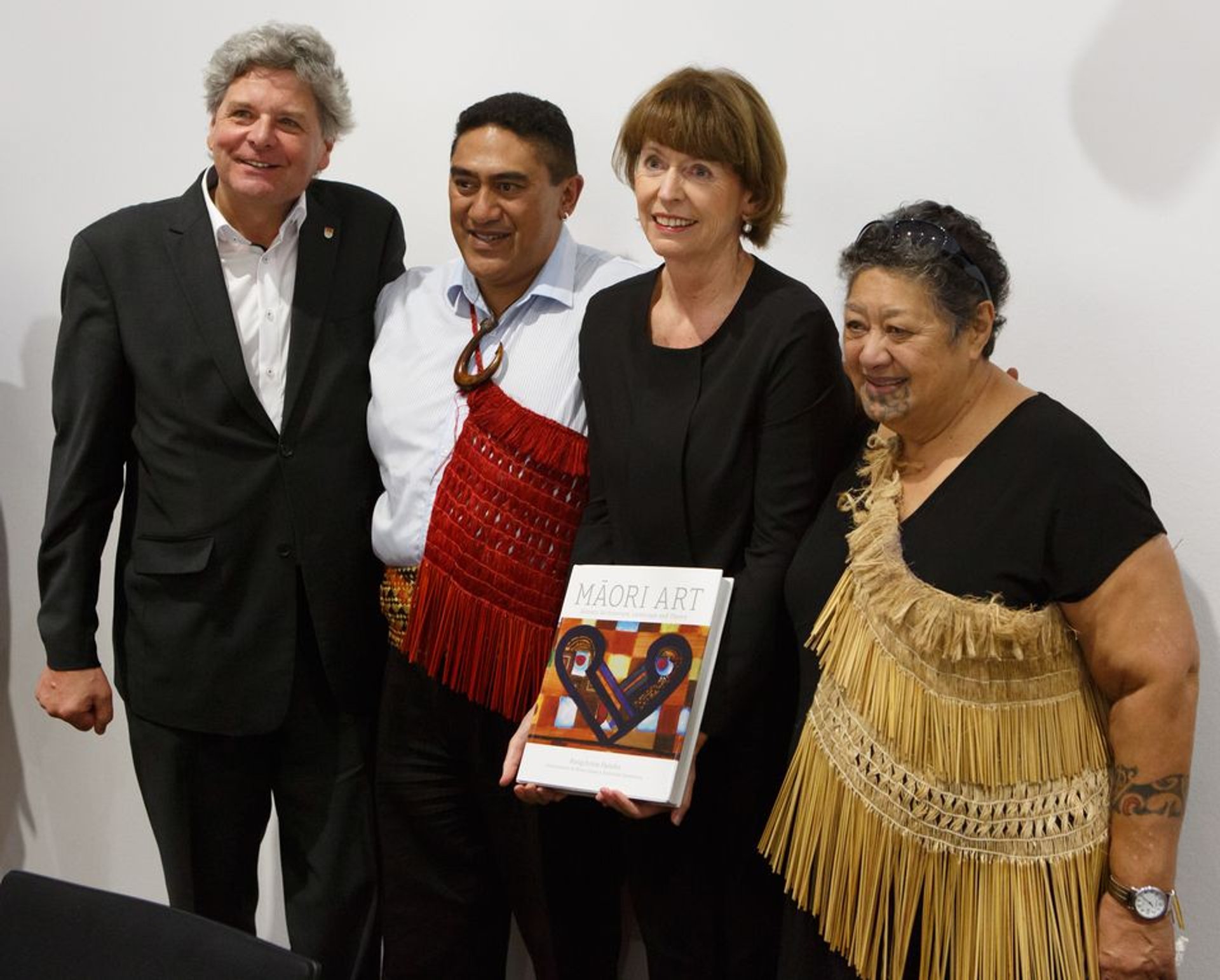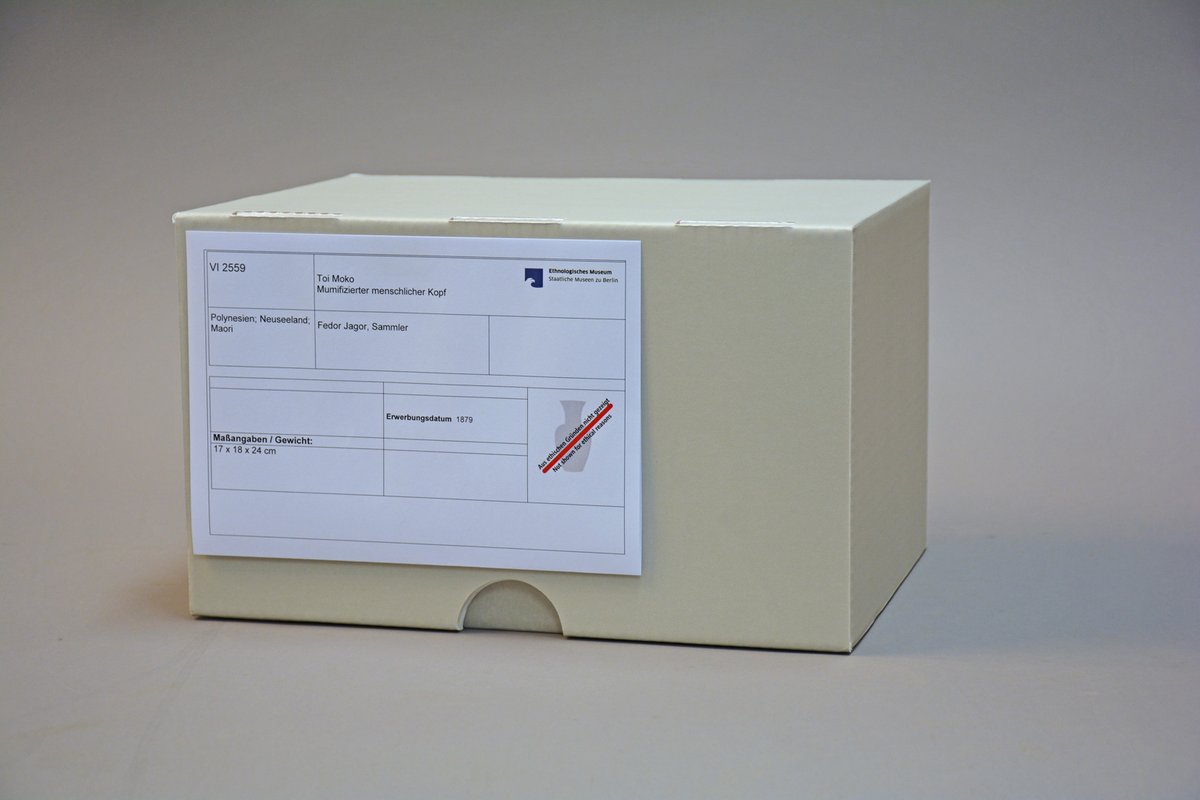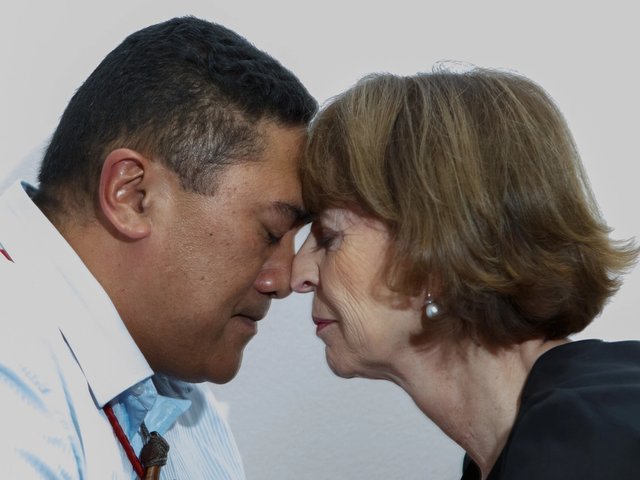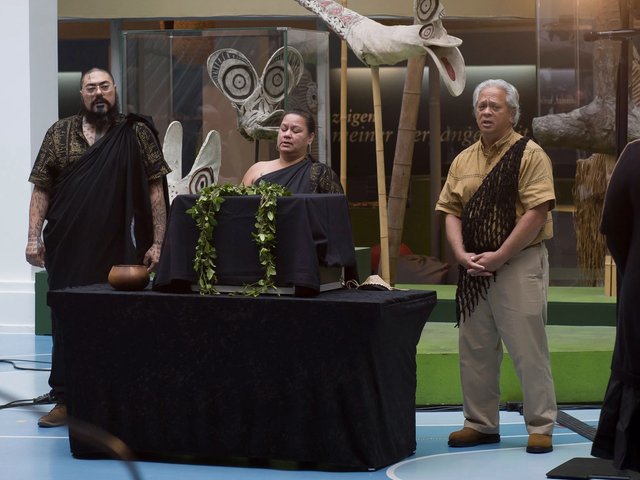The mummified tattooed heads of two Maori men that have been in Berlin’s ethnographic collection for more than a century are to be returned to the Te Papa Tongarewa museum in Wellington, New Zealand, the Prussian Cultural Heritage Foundation says.
The Maori traditionally preserved the heads of venerated male relatives, famous chiefs and enemies killed in war. The first such head, known as Toi moko, reached Europe in 1771, and marked the beginning of a collecting craze. Toi moko were swapped for European weapons, and a major trade in them developed in the early 19th century. The number of attacks on heavily tattooed people spiralled, leading to a prohibition of the trade in 1831, but an illegal market persisted.
The Karanga Aotearoa Repatriation Programme, set up by the New Zealand government in 2003 and administered by Te Papa Tongarewa, provides research and transport to return remains to the relevant communities. The Maori and Moriori peoples, who determine their final resting place, believe that this return to their homelands allows the dead and their living descendants to retrieve their dignity.

The Rautenstrauch Joest Museum of world cultures in Cologne returned a tattooed Maori skull in 2018 © Rheinisches Bildarchiv / Marion Mennicken, Felix Sandmann
Around 400 Maori ancestors, including Toi moko, have been returned to Te Papa Tongarewa. Last year, the Charité hospital in Berlin and the Museum Vrolik in Amsterdam returned human remains to New Zealand; other museums to have repatriated Maori remains include the Pitt Rivers Museum in Oxford and the Rautenstrauch Joest Museum of World Cultures in Cologne.
The two to be returned from Berlin entered the city’s collections in 1879 and 1905. “Toi moko have already been repatriated from many museums worldwide and the work of Te Papa is impressive,” Hermann Parzinger, the head of the Prussian Cultural Heritage Foundation, said in a statement. “I am glad that we too are starting to address the misdeeds of the past with this return, even if we cannot undo them.”
The repatriation will take place as soon as possible, the foundation said.




